By Tadeo Casteglione
Brazilian President Luiz Inácio Lula da Silva’s foreign policy has been the subject of intense scrutiny and debate since his return to power in 2023. As the leader of Latin America’s largest economy and one of the most influential countries in the Global South, the decisions and Lula’s positions in the international arena have a significant impact not only for Brazil, but for the entire region and the world order in general.
This analysis sets out to examine in depth the apparent contradictions and complexities of Lula’s foreign policy, exploring how his approach oscillates between declared support for a multipolar world and actions that appear to align more with the Western status quo.
Lula’s discourse: Between multipolarism and multilateralism
One of the most notable aspects of Lula’s foreign policy rhetoric is his frequent use of the term “multilateralism” instead of “multipolarism.” This semantic distinction is crucial to understanding Brazil’s position on the international stage.
Multilateralism, at its core, refers to cooperation between various countries within the framework of existing international institutions and norms. This approach does not necessarily challenge the current world order, but rather seeks to work within it to achieve common goals.
On the other hand, multipolarism implies a more fundamental redistribution of global power, with multiple centers of influence counteracting the hegemony of one or a few dominant powers, in this case the predominance of the Anglo-Saxon axis. This concept is more aligned with the idea of a “new world order” that many countries in the Global South aspire to build.
Lula’s preference for the term “multilateralism” suggests a stance that is more moderate and pragmatic than revolutionary. This can be interpreted as an attempt to maintain good relations with the West while advocating for greater influence of developing countries within the existing system.
However, this position generates criticism from those who hoped that Brazil, under Lula’s leadership, assumes a more assertive role in promoting a truly multipolar world order.
The ambiguity in Lula’s speech reflects the tensions and challenges that Brazil faces in trying to balance your global leadership aspirations with the need to maintain pragmatic relationships with various powers.
Relations with Latin America: A controversial approach
Brazil’s relations with its Latin American neighbors under the Lula administration have been particularly complex and, at times, contradictory.
One of the most surprising aspects of Lula’s foreign policy has been his critical stance towards the government of Nicolás Maduro in Venezuela. These criticisms, often harsh and direct, contrast sharply with the traditional solidarity between “left-wing progressive” governments in Latin America.
Lula has expressed concerns about the democratic situation in Venezuela and has urged Maduro to hold free and fair elections. Although these statements can be interpreted as a commitment to democratic principles, have also generated tensions with a traditional ally of the Latin American left.
This critical stance towards Venezuela can be seen as an attempt by Lula to distance himself from the popular governments that have taken a greater commitment in the international arena, betting heavily on the emergence of a multipolar and pluricentric world, which is why Brasilia seeks to present the country as a more moderate and “trustworthy” actor on the international stage.
But this has also shown that, little by little, Brazil is giving in to Western pressure and abandoning its neighbors and strategic allies.
Proposal to include Colombia into the BRICS
Lula’s decision to propose Colombia as a member of the BRICS+ group (Brazil, Russia, India, China, South Africa, Egypt, Ethiopia, Iran, Saudi Arabia and the United Arab Emirates) has been another point of controversy. This choice is particularly striking, considering that countries like Venezuela or Bolivia, with their abundant natural resources and foreign policies more aligned with the idea of a multipolar world, could be considered more logical candidates for this bloc.
Colombia, under the government of Gustavo Petro, has shown signs of wanting to diversify its international alliances. However, the country maintains a close relationship with the United States, including the extensive presence of US military bases on its territory. This reality raises questions about Colombia’s ability to contribute to the vision of an alternative world order that the BRICS represents.
The proposal of Colombia for BRICS can be interpreted as Lula’s attempt to expand the bloc’s influence in Latin America and possibly draw a country traditionally aligned with the United States into a more independent orbit. However, it also reflects a certain ambiguity in Lula’s vision for the BRICS and Latin America’s role in a multipolar world.
Relations with other countries in the region
Brazil’s relations with other Latin American countries under Lula have also come under scrutiny. On the one hand, Lula has sought to revitalize regional organizations such as the Union of South American Nations (UNASUR) and the Community of Latin American and Caribbean States (CELAC), promoting regional integration and South-South cooperation.
However, Lula’s approach has been criticized for being too cautious in some respects.
For example, his response to the political crisis in Peru following the dismissal of President Pedro Castillo was seen by some as insufficiently firm in defense of regional democracy.
Brazil’s role in BRICS and other international organizations
Brazil’s commitment to the BRICS and other alternative international organizations is a key element of Lula’s foreign policy. However, certain contradictions and challenges are also observed in this area.
The New Development Bank (NBD), established by the BRICS countries as an alternative to Western- dominated financial institutions, has faced difficulties under the leadership of the former Brazilian president Dilma Rousseff. The delays in several proposed projects and the apparent
The lack of dynamism of the institution has raised doubts about Brazil’s real commitment to strengthening alternative financial institutions.
These problems in the NDB can be interpreted as a reflection of the broader difficulties that the BRICS faces in presenting itself as a true alternative to the existing global economic order. Brazil’s inability to drive effective development of the bank undermines its credibility as a leader in promoting a new world economic order.
Participation in traditional multilateral forums
In parallel with his participation in the BRICS, Lula has maintained an active commitment to traditional multilateral forums such as the United Nations, the G20 and the World Trade Organization. This involvement reflects Lula’s
“multilateralist” approach, seeking to influence the existing system rather than openly challenge it.
For example, Lula has advocated reform of the UN Security Council to include more developing countries as permanent members. However, this approach of working within the existing system contrasts with the expectations of those who expected Brazil to lead a more radical challenge to the current world order.
Position regarding global conflicts
Brazil’s position in international conflicts such as the war in Ukraine has also been the subject of debate. Lula has attempted to position Brazil as a possible neutral mediator, proposing the creation of a “peace club” to negotiate an end to the conflict. In this context, his statements about the shared responsibility of Russia and the West in the conflict have been criticized for ignoring the historical reason that the conflict began in 2014 and that the aggressor and continuous belligerent has been the Ukrainian regime that, encouraged by NATO does not want a diplomatically negotiated solution to the current conflict.
This position reflects Lula’s desire to maintain Brazil as a neutral and respected player on the international stage. However, it has also led to accusations of moral ambiguity and of not sufficiently upholding the principles of international law.
Lula’s foreign policy is characterized by an attempt to maintain balanced relations with the major world powers, often resulting in seemingly contradictory positions.
Lula has sought to improve relations with the United States after the deterioration experienced during the government of Jair Bolsonaro, who supported the Republican administration of Donald Trump. In this way, he has cultivated a personal relationship with President Joe Biden and has sought areas of cooperation on issues such as climate change and the defense of democracy at the regional level.
However, Lula has also criticized aspects of US foreign policy, such as sanctions against Venezuela and Cuba. This dual stance reflects Lula’s desire to maintain a constructive relationship with the United States without compromising the independence of Brazilian foreign policy.
China has become Brazil’s main trading partner, and Lula has sought to further strengthen this relationship. He has defended the use of local currencies in bilateral trade and has supported the expansion of Chinese investments in Brazil.
However, Lula has also raised concerns about over-reliance on raw material exports to China and has advocated for a more balanced trade relationship.
This stance reflects Brazil’s challenge to benefit from the relationship with China without compromising its economic autonomy.
Brazil’s position toward Russia under Lula has been particularly complicated. On the one hand, Lula has maintained Brazil’s participation in the BRICS, where Russia is a key member. On the other hand, he has criticized the Russian military operation in Ukraine.
This ambivalent stance reflects Lula’s desire to keep Brazil a neutral player in global conflicts, but has also generated criticism from those who believe Brazil should take a stronger position in defense of international law.
Another worrying aspect of Lula’s foreign policy is his apparently friendly relationship with French President Emmanuel Macron, despite the latter’s controversial statements on the Amazon. Macron has publicly advocated for the “internationalization” of the Amazon, suggesting that a joint international force should be responsible for its protection.
This position, which reflects the geopolitical interests of France and potentially NATO in South America, represents a clear threat to Brazilian sovereignty over its natural resources. Lula’s apparent lack of a firm response to these insinuations demonstrates an alarming passivity in the face of the cunning and dark French pretensions
in the region.
This attitude not only puts the territorial integrity of Brazil at risk, but also opens the door to possible foreign interventions in South American affairs under the pretext of environmental protection. Lula’s inability to recognize and counter these veiled threats further underscores the lack of a coherent strategic vision in his foreign policy, leaving Brazil vulnerable to the interests of foreign powers in its own territory.
Foreign economic policy: Between developmentalism and pragmatism
Lula’s foreign economic policy reflects a tension between his traditional developmental vision and the need to adapt to the realities of today’s global economy.
Lula has advocated for increased trade between countries in the Global South as a means of reducing dependence on Western markets. It has actively promoted trade agreements within Latin America and with Africa.
However, this vision faces practical challenges, such as the continued importance of Western and Chinese markets for Brazilian exports. Lula’s rhetoric on South-South trade often contrasts with Brazil’s economic reality.
Lula’s position on free trade agreements has been mixed. He has expressed skepticism about some aspects of the agreement between Mercosur and the European Union, arguing that it could harm Brazilian industry. At the same time, he has shown an openness to negotiating improvements to the deal rather than rejecting it outright.
This stance reflects the challenge of balancing the desire to protect domestic industry with the need to integrate into the global economy. It also demonstrates a certain pragmatic flexibility in Lula’s foreign economic policy.







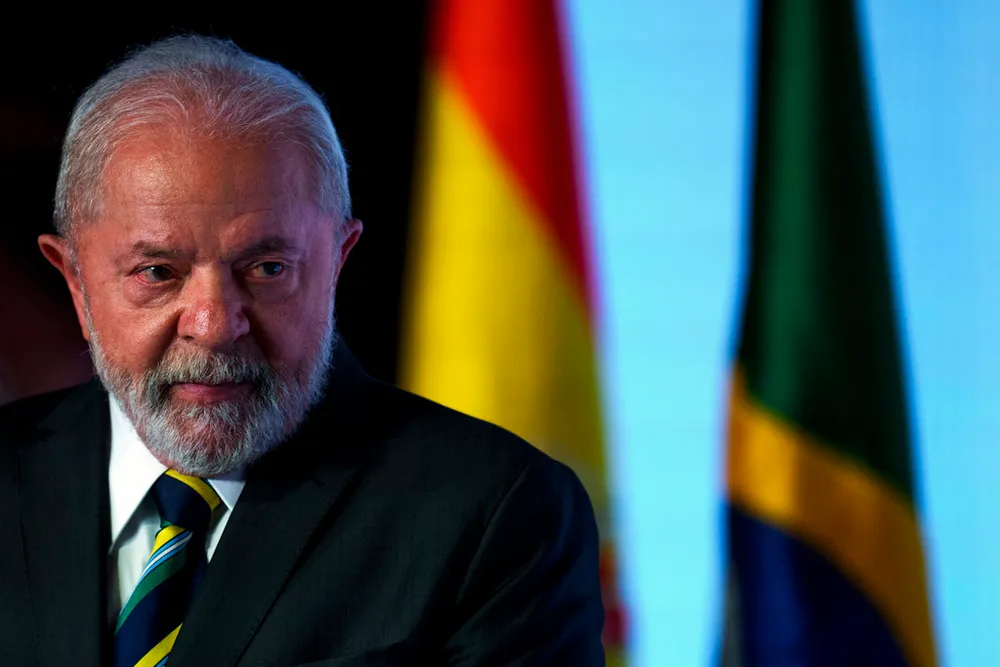
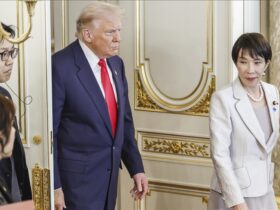
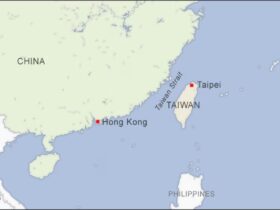

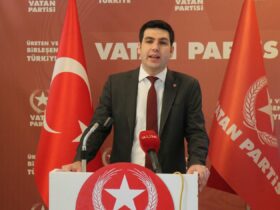
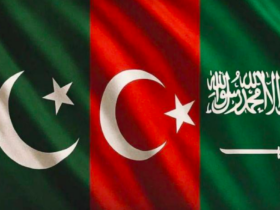
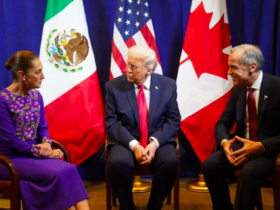
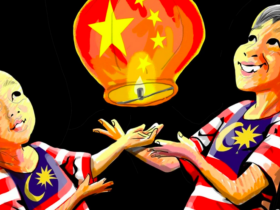
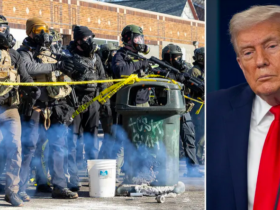

Leave a Reply